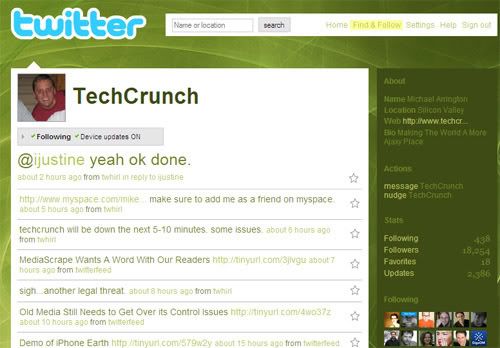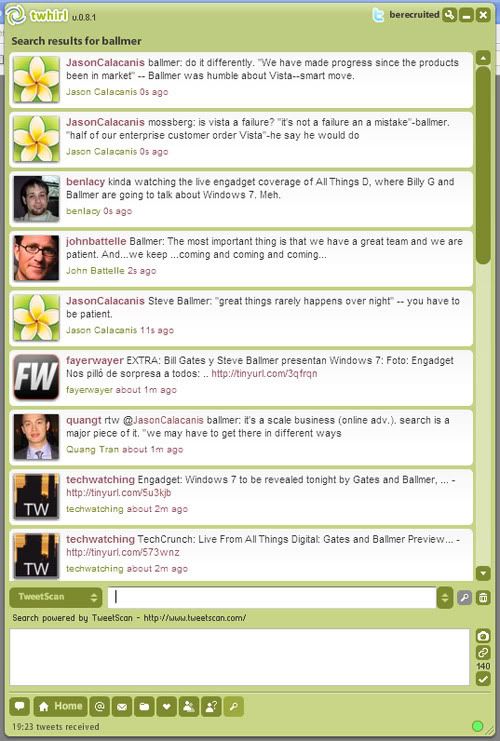In response to Om Malik's proposal that Twitter tax it's top users with usage fees, I argued that Twitter needs power users like Michael Arrington, Robert Scoble, and Loic Lemeur. Loic then shared the article via Twitter, sparking an influx of Twitter friend requests and direct messages... which lead me to a point that, in hindsight, is very obvious: Power users are essential to Twitter for more than just their content... Power users drive connections.
We all agree that there is nothing more awkward than arriving somewhere where we don't know or recognize anybody. If you come to Twitter without a close set of friends - it's an empty, useless place.
But users like Scoble and Arrington are your MCs. They play host to your experience on Twitter. Even if you don't particularly love their content, they update frequently and demonstrate that there is activity and interaction. The other critical role of a host is to make introductions - and that is precisely what these users do. Some times it's direct - like the example where Loic referred his followers to my blog post (and with a @berecruited comment). But most often the introductions are indirect. @techcruch has nearly 20,000 followers - which equates to 20,000 users who have somewhat relevant interests. That's 20,000 pivot points and 20,000 more users to act as hosts to new conversations and communities.

Update (and a future post to come) - 9:31 pst, 5/30/2008
VentureBeat has a post saying that Twitter doesn't blame Ruby's infrastructure, they blame power users like Scoble. The following quote is from Twitter developer Alex Payne. His point is accurate - but I would be *very* cautious of placing blame. If Twitter (which we should all remember is still in it's infancy) can't handle a handful of power-users, they are going to be in real trouble:
The events that hit our system the hardest are generally when “popular” users - that is, users with large numbers of followers and people they’re following - perform a number of actions in rapid succession. This usually results in a number of big queries that pile up in our database(s). Not running scripts to follow thousands of users at a time would be a help, but that’s behavior we have to limit on our side.


